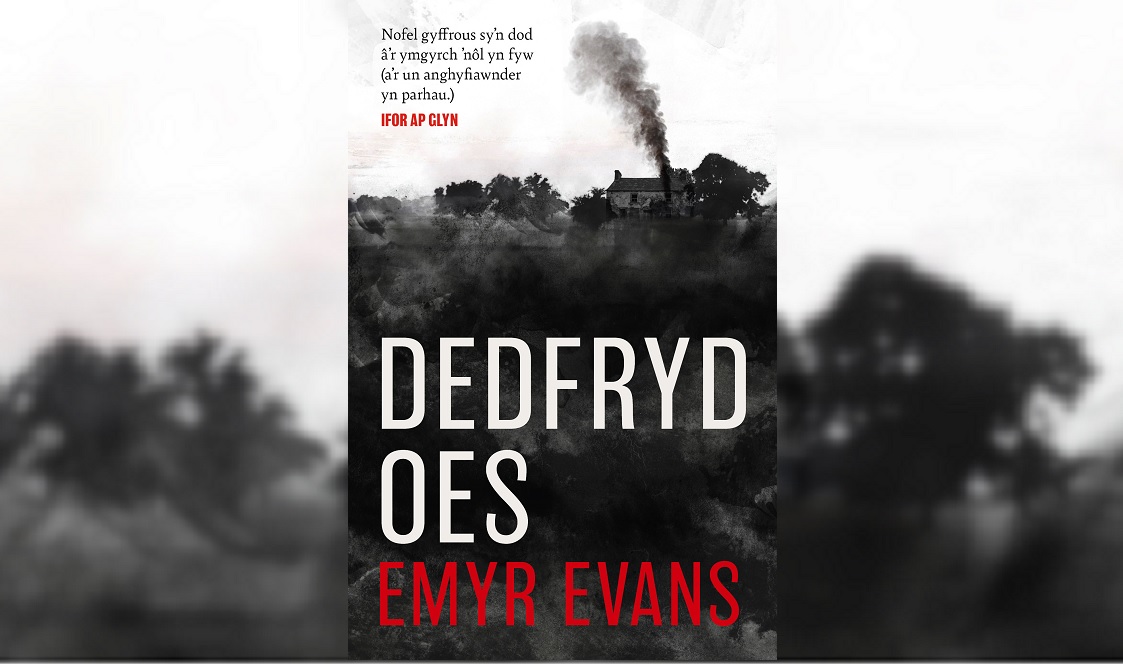New book explores what would have happened if Meibion Glyndŵr had been caught

A new novel explores what would have happened had one of the Meibion Glyndŵr group responsible for setting fire to holiday homes in Wales from 1979 to the mid-1990s had been caught.
Despite much discussion and speculation at the time and since, no one knows for sure who was responsible for the campaign to burn down summer homes across Wales, that began and ended so abruptly.
The novel by author Emyr Evans tells the tale of Siôn, an Aberystwyth-based student who is part of the Welsh nationalist movement. But one night, a friend’s reckless act turns his work upside down and he spends 20 years in prison.
When he emerges, the new Wales is very different to the one he remembers. As he becomes disillusioned, he is drawn back into the circle of his former prison mates, and is drawn to another dangerous situation that has the potential to ruin his life once again.
Emyr Evans said that growing up, there was something “quite romantic” about the Meibion Glyndŵr but had now “become older and a little wiser”.
“There was mystery, enterprise, and a campaign of action – and I had a secret admiration for them.
“But before anyone asked, no, I wasn’t a member! I have no idea who was doing it, and my version of the campaign is based on pure imagination. I only ventured to paint a few slogans on a wall here and there.”
‘Finished’
But the author from Cwrtnewydd, like his main character, sees the change that has taken place in rural Wales in the last twenty years.
“Undoubtedly, the monolingual Welsh-speaking areas of rural south Ceredigion have long disappeared,” he said. But he added that people “could be persuaded to accept our language and our heritage”.
Emyr Evans said that the idea for the novel had been simmering since his time at university, when he was inspired by one of his friends Ifor ap Glyn’s poems, but he did not put pen to paper until recently when he had a dormant period between two jobs.
“Within three days most of the story was complete,” he said. “But I had to return to it tens of times before offering it to the press, and the finished story is nowhere near the original idea that had been bubbling away for decades.”
Defryd Oes is out now and can be bought on Gwales.
Support our Nation today
For the price of a cup of coffee a month you can help us create an independent, not-for-profit, national news service for the people of Wales, by the people of Wales.






I’m not condoning violence or destruction of anyone’s homes, but sadly this is what happens when a people become so desperate when their pleas fall of deaf ears they do the unthinkable. r was the symptom of years of Wales & Welsh language oppression by the English establishment at Westminster. Remember this was the bad old days of Pre-Devolution Whitehall direct rule, and a time when fascist Margaret Thatcher came to power in 1979 to the delight of the far-right. And remember this important factor. Thatcher in her time in office wined & dined at public expense mass murder Argentinian… Read more »
Pinochet was from Chile.
So what would you have preferred?
People from Liverpool to die?
Silly comment.
Still, if you want immaturity, Derbyshire, south and west Yorkshire, even part of north Yorks are closer. Much closer if you don’t want the trouble of running the supply under two estuaries. I imagine they all had suitably underpopulated valleys.
And they’re in the country that uses the water…
None of those places in closer
No one in Liverpool would have died, and indeed, years after the construction of the dam it was found that the water wasn’t even needed as the projection of water need for Liverpool was based on projections for economic growth, i.e. industrial expansion that never materialised.
How do you know.
Are you a specialist in pubix health.
Fair few Welsh men drunk on stag nights kerb crawling English women the last time I was in Liverpool
It’s well-documented that the water was for industrial use that never materialised, and not to make a paned o de.
Not impressed by the new name, by the way. Worst one you’ve chosen so far.
Most, if not all the graves in the cemetery at Capel Celyn were moved to the current memorial chapel built on the banks of the reservoir.
Your comments about Thatcher need to be challenged. Sure, she was nasty, but no fascist, and as far as the role she had in decimating the coal industry in South Wales it’s important to recognise that Labour closed far more pits in the Welsh Valleys than Thatcher ever did. I’m not being an apologist for Thatcher, just pointing out that she wasn’t alone in wrecking the once thriving Welsh economy.